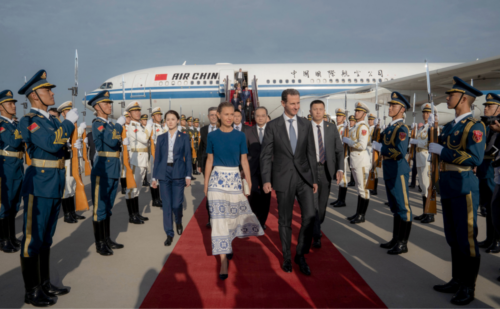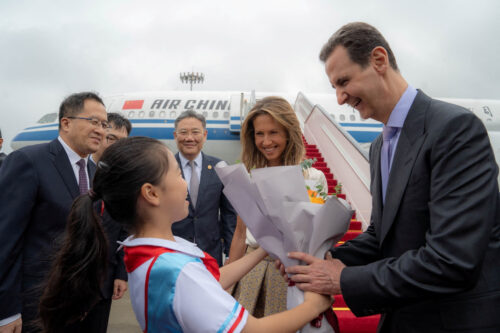China further embraces Iran with 25-year cooperation agreement
China will reportedly receive a steady supply of oil from Iran in exchange for large multi-sector investments in the Iranian economy. The deal is the latest move by Beijing to increase its influence in the Middle East.

On his third stop in a weeklong Middle East tour, Chinese Foreign Minister Wáng Yì 王毅 signed a 25-year cooperation agreement with Iran.
- Xí Jìnpíng 习近平 became the first Chinese leader to visit Iran in over a decade in 2016. The deal just signed was first proposed during that visit, but negotiations went slowly until the U.S. pulled out of the Iran deal in 2018.
- At that point, European firms that had considered investing in Iran pulled out, “forcing Iran to look east,” the New York Times reports.
- In exchange for Chinese investment in multiple industries, China will receive a “steady supply of oil,” the NYT says. The deal will also grow Iran’s role in China’s Belt and Road Initiative.
- “China is a friend for hard times,” said Wang Yi’s Iranian counterpart, Javad Zarif, after signing the deal.
“Details of the agreement were not disclosed and it was not clear how much it might have changed from an 18-page draft” that was circulated to media in July 2020, the Financial Times reports.
Are we talking about the same 18-page document?
There appear to be conflicting reports about what is actually in the deal.
- According to the New York Times, the July 2020 draft “detailed $400 billion of Chinese investments to be made in dozens of fields, including banking, telecommunications, ports, railways, health care and information technology,” and “experts said” the new deal was “largely unchanged” from that draft.
- No outlet other than the New York Times appears to have a specific number like $400 billion for the total value of Chinese investments.
- According to the Financial Times, the draft deal last year “contained no information on China’s investments in Iran.” Further, the FT says that it “did not indicate any strategic shift in Iran’s foreign policy.”
It is true that this is not a big shift for Iran, at least as far as oil exports are concerned — according to commodities and shipping data trackers, China had already been buying more Iranian oil in recent weeks than at any time “since a full U.S. oil embargo was imposed against Tehran two years ago,” the WSJ reported.
But the significance for China could be large: Wang Yi’s trip shows that Beijing is intent on increasing its influence in the Middle East. Before sealing the bilateral deal with Iran, Wang thanked Saudi Arabia for political support of China’s policies in Xinjiang and he even offered for China to broker Israel-Palentine peace talks. His stop after Iran, the UAE, is a regional center for Chinese vaccine diplomacy.






